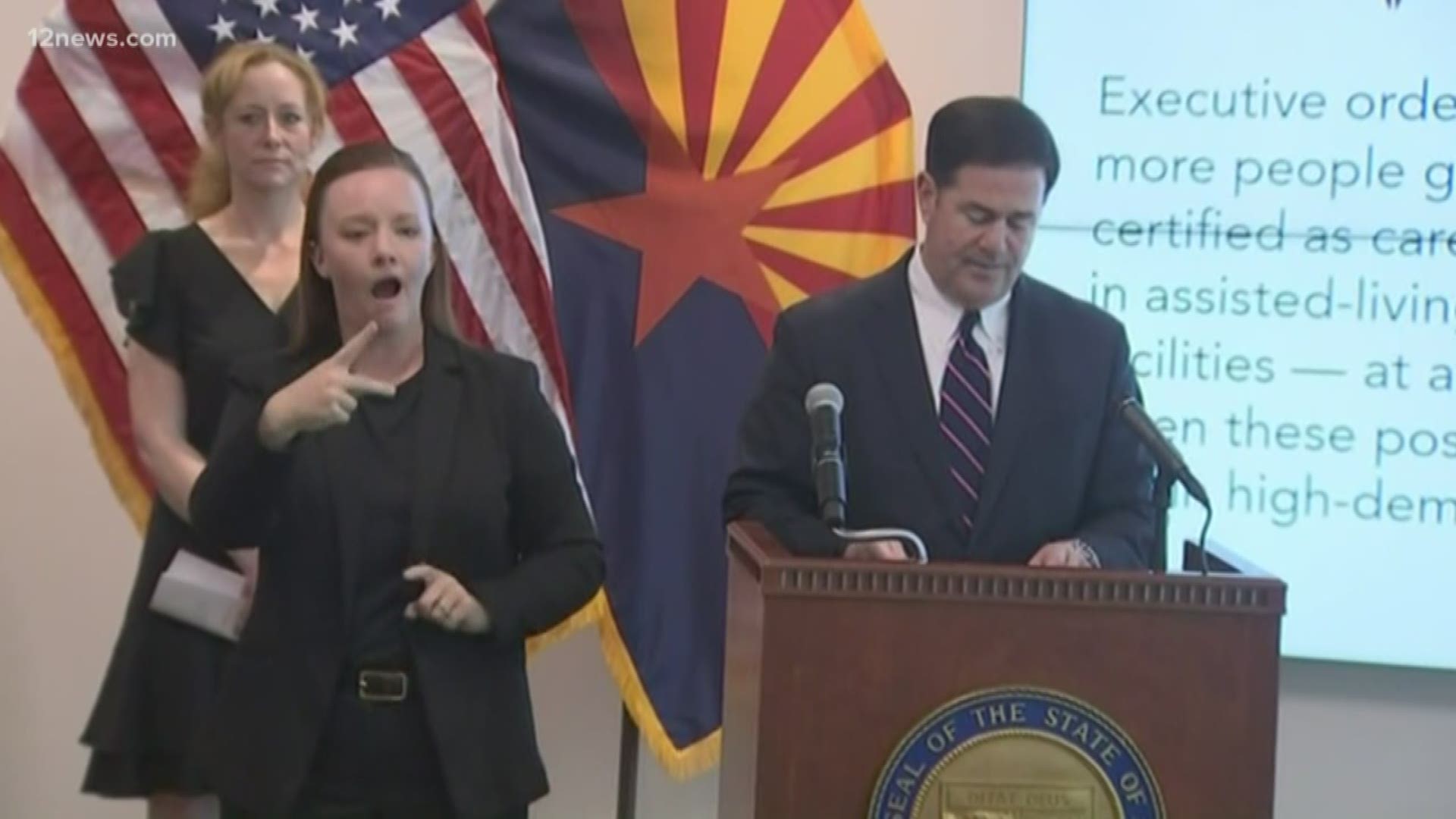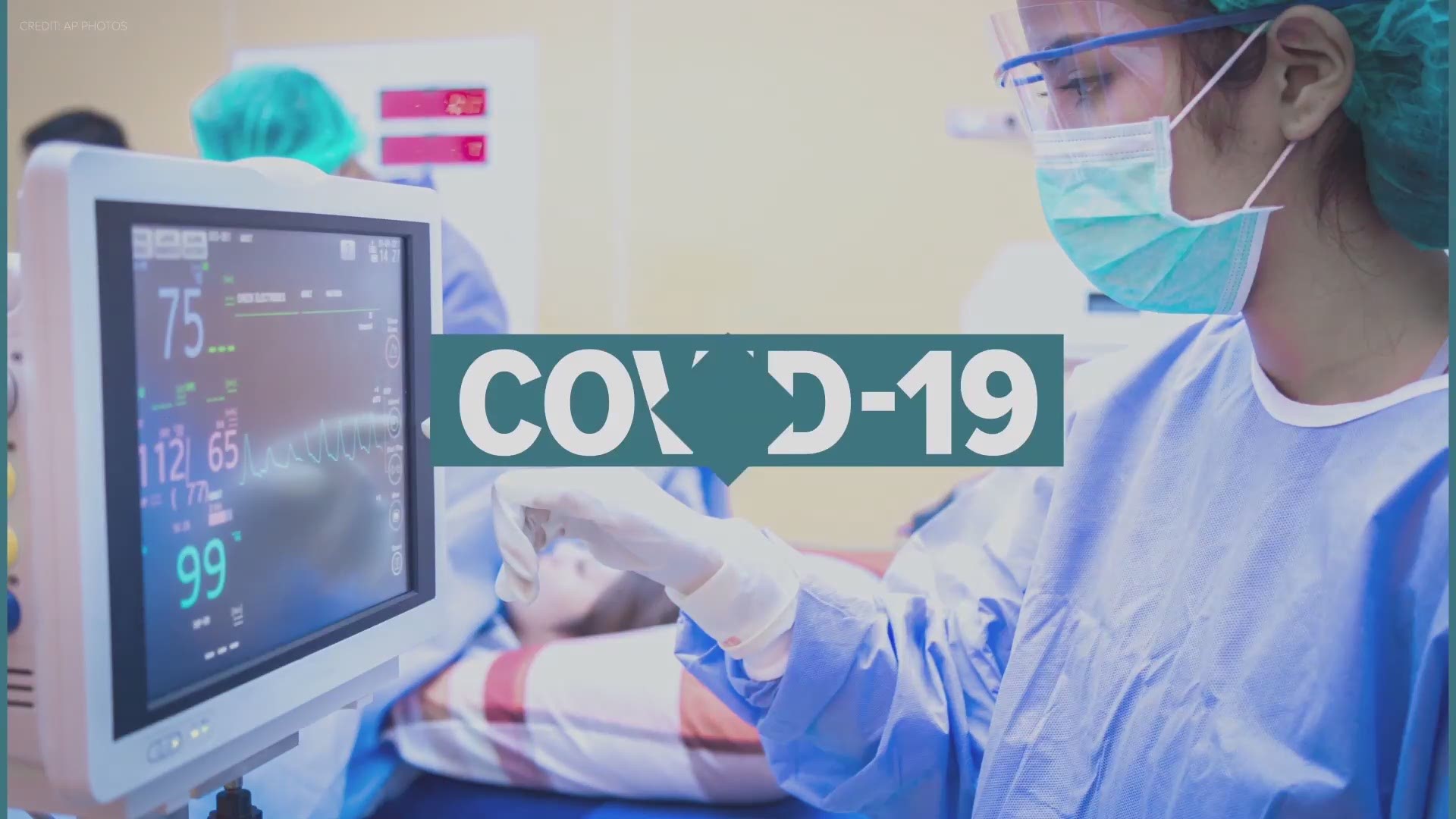PHOENIX —
For the last month, most Arizonans have been cooped up at home, staying safe from the coronavirus.
By midnight Thursday, less than 48 hours away, Arizona Gov. Doug Ducey will tell us how much longer that will last.
The governor has three choices when his 30-day stay-at-home order ends: let it expire, extend it, or modify it.
All signs point to a modified order. Here are five things to know as we await the governor’s decision:
What does the data say? The governor has said this will be a “data-driven” decision.
None of the publicly available data about COVID-19’s progress in Arizona indicates the state has turned a corner.
In Maricopa County, the state’s largest county, coronavirus cases and hospitalizations appear to have flattened, but they’re not declining.
On the Navajo Nation, in northeastern Arizona, the epidemic might still be escalating. Nursing homes remain a hotspot.
‘Turning down the dimmer’: the governor’s public statements have stressed going slow and being flexible as the state emerges from the stay-at-home order.
The humble light switch has become a popular metaphor for how to reopen Arizona.
“It’s not a light switch. It’s not something you turn off and on,” the governor likes to say.
Ducey and other governors taking the same approach have support in high places.
On last weekend’s “Meet the Press,” White House adviser Dr. Deborah Birx put a spotlight on the governors.
“They’ve really been very insightful of how they’re looking at this,” Birx told moderator Chuck Todd.
“They understand the risk and they talk of this not as turning on the light switch, but slowly turning up the dimmer.”
Ducey is also winning support closer to home.
Maricopa County Medical Director Dr. Rebecca Sunenshine said last week she agreed with the governor’s strategy.
“We’re very comfortable with pulling back slightly, watching and waiting, monitoring the data to make sure everyone’s safe, then slowing social distancing,” Sunenshine said.
Sinema says slow down: U.S. Sen. Kyrsten Sinema, who publicly pressured Ducey back in march to shut down bars, restaurants and other large gathering sites, tells 12 News he should wait two weeks before starting a slow reopening.
“One of the dangers I think we’ll see from states like Georgia who have taken action to reopen very quickly is they’re likely to have to shut down pretty quickly as well,” Sinema said in an interview late Tuesday.
Sinema said Arizona State University researchers believe the state could be two weeks away from a phased-in reopening on May 11, based on White House guidelines.
There are two yardsticks:
-Are the number of positive cases decreasing?
-Is the percentage of positive cases decreasing as the number of tests increases?
ASU researcher Tim Lant told the Phoenix City Council on Tuesday that case growth "is the cleanest signal that we get" about the virus' direction. "Those are the signs we're marshalling an effective response."
The state is three days into that first 14-day stretch showing the required downward trajectory of cases, according to ASU researchers.
“If we do that for 14 days in a row," Sinema said, "then the White House guidelines say it’s safe to move to phase one, which allows us to do some small steps to reopen the economy.'
“We’ve got to finish those 14 days without a hiccup... That’s why it makes sense to start looking at May 15 as a date to target for phase one.”
What about testing? The Arizona Department of Health Services has announced a statewide “testing blitz” for the next three weekends, coinciding with the end of the stay-at-home order.
The goal: Processing 10,000 to 20,000 coronavirus tests statewide every week for three weeks, starting Saturday.
The main hub will be the Arizona State Fairgrounds, for walk-in or drive-up tests by Banner Health.
The 20,000 target - about double the state’s weekly testing average - is on the mark, according to an analysis by STAT and Harvard University researchers.
The analysis projects Arizona would need to test at least 3,000 people a day - 21,000 a week - to ensure the coronavirus is under control.
The sudden burst in testing comes after coronavirus tests were rationed for almost two months, because of supply and PPE shortages. DHS is now loosening criteria for testing, and the governor’s office believes the goal can be reached.
“We are told that they do have capacity for 20,000 (tests) per weekend,” Ducey spokesman Patrick Ptak told me.
You can find testing locations here.
What do Arizona businesses want? Simply put, they want to start picking up the pieces but doing it safely.
The pandemic’s economic devastation has been profound - all of the jobs created since the Great Recession and then some have vanished. The state's jobless rate is now estimated at about 15 percent.
The governor’s deliberate approach tries to balance public health with economic need. Ducey has said he wants to move forward, while giving himself room to back off if coronavirus numbers go the wrong way.
A May 15 reopening date for businesses has been in the air for a few weeks. Some businesses are already to preparing to go their own way.
The head of the Arizona Restaurant Association mentioned a “mid-May” target two weeks ago (though Mother’s Day, on May 10, is the biggest dining-out day of the year).
The general manager of Harrah’s Ak-Chin casino south of Phoenix told employees this week that May 15 is a public target, though parts of the casino could reopen by May 8.
But there’s more: Glenn Hamer, a Ducey confidant and leader of the state’s most powerful business lobby, the Arizona Chamber of Commerce & Industry, acknowledges the need for business to do all it can to protect employees and customers from the threat of the coronavirus.
In an op-ed in the Arizona Republic, Hamer also has specific “asks” to protect businesses: easing their tax deadlines and penalties, and shielding them from liability in COVID-19-related lawsuits.


